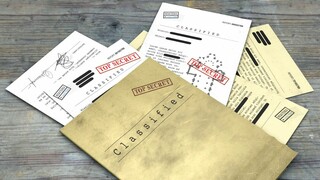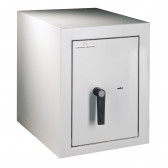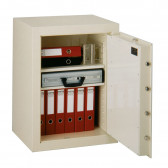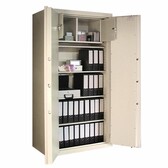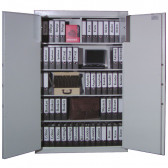According to the Law on the Protection of Classified Information, classified information is important data, the disclosure of which would expose Poland to damage and loss. Therefore, such information must be closely guarded and its disclosure may result in legal sanctions. Effective protection of important data requires that it be kept in a safe, to which only authorised persons with the appropriate security clearance have access.
What is classified information and how is it classified?
Classified information is any data related to the functioning of the Republic of Poland. Among other things, they refer to:
● the protection of state security,
● the military system and defence,
● public order,
● foreign policy,
● the state's financial system and economy,
● the protection and rights of citizens,
● the efficiency of the internal services.
It can be said that classified information concerns the whole system of state functioning.
Classified information can be divided into four categories.
1. top secret – documents, the disclosure of which may cause extremely serious damage to the State. This may be, for example, a threat to the independence or inviolability of borders.
2. secret – information the disclosure of which may cause great but lesser harm than the disclosure of top secret data. For example, deterioration of international relations or a large loss of economic interests.
3. confidential – data the disclosure of which may contribute to causing harm such as, for example, hindering foreign policy or hindering the tasks of law enforcement agencies.
4. restricted – all classified data which have not been given a higher security classification.
Who can have access to classified information?
Access to classified information is available only to persons who have passed the verification carried out by the Internal Security Agency and the Military Counterintelligence Service. After verifying whether a given person gives a guarantee of secrecy, a security clearance is issued (a document confirming the ability to work on files with a specific security classification).
A person authorised to view and work with classified documents shall have knowledge of how to protect and store all files. Classified data shall be stored in certified office safes with a specific security class.
Classified documents may be viewed and processed on a computer. However, the condition is that the equipment on which you work must also have a specific security classification.
Who supervises the protection of classified information?
The system of protection of classified information is supervised by the Internal Security Agency and the Military Counterintelligence Service. These two state institutions are in particular responsible for:
● controlling the storage of classified information,
● verifying compliance with the regulations on the protection of classified information,
● carrying out vetting of persons applying for access to classified information,
● conducting investigations of persons suspected of disclosing state secrets,
● organising training courses on securing classified information,
● issuing security clearances,
● protecting classified information provided to other countries and organisations.
Is personal data classified information?
Personal data under the GDPR, the Data Protection Regulation, cannot be publicly available. However, this does not mean that it is classified information. Personal data of some persons (especially the most important persons in the state) may be given a specific classification and then become classified information.
However, this does not change the fact that personal data is subject to special protection and it is best to keep it in a file safe. Disclosure of personal information may result in criminal consequences, which is why people running a business keep all information about their employees hidden in a safe.
See also other articles: GDPR compliant safe
Is public information also protected?
Public information is simply data made available to the public. It is not subject to protection and is available to the public. Everyone can read, among other things, the law gazette, the public information bulletin or demographic data.
Public information may be provided to the public by active or passive means. Active means include the publication of bulletins and announcements. The passive way involves a request for access to specific information.
In conclusion, persons with security clearance and access to classified information are obliged to protect any documents entrusted to them. The only effective way to store both personal data and classified information is in a certified safe. Incorrect storage or disclosure of restricted documents has legal consequences and the revocation of security clearance. A person whose access to classified information has been withdrawn may no longer perform his or her function in the position held.
